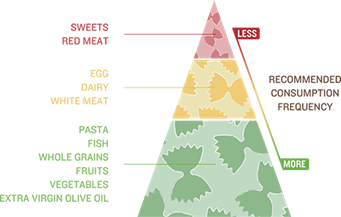I often get questions like “Is the Mediterranean Diet healthy?” As such, I want to spend some time highlighting the health benefits of different diets, or ways of eating. I believe that no one diet works for everyone. We all have different biochemical make-ups. That said, the more you’re informed, the better you can determine your best way of eating. Only you know what works for your body. Moreover, experimentation is the best way to know the answer to the question “Is the Mediterranean diet healthy?” – for you.
About the Mediterranean Diet
US News ranks the Mediterranean diet #2 on their Best Diets list. However, that doesn’t mean free reign to eat unlimited pasta. The hallmarks of a Mediterranean Diet include omega-3 fatty acids and few saturated fats. This alone makes it a highly anti-inflammatory way to eat.
Considered one of the healthiest diets in the world, the Mediterranean Diet is based on the region’s food, customs and dietary traditions. The region consists of the Mediterranean Sea and seven member countries – parts of Portugal, Italy, Spain and France as well as Greece, Malta and Cyprus. The region is characterized by a generally hilly landscape, hot, dry Summers and cool Winters.
Those who live in the Mediterranean have some of the highest life expectancies in the world. Moreover, they have the world’s lowest rates of heart disease, cancer and diabetes. These low rates of inflammatory disease may be attributed to their food and lifestyle.
Mediterranean Diet Healthy Foods List
Most noteworthy, is that the Mediterranean diet contains no processed or refined food. It’s rich in natural foods like fruit, meat, wild fish, legumes, nuts, dairy (especially from goats), oils, vegetables and whole grains. It prioritizes seasonality and lots of extra virgin olive oil. Furthermore, there’s a strong focus on leisure time, nurturing relationships and physical activity. Overall, it’s a low-stress lifestyle.
Furthermore and contrary to popular belief, meat, wine and coffee are consumed in moderation. Lemon and fresh herbs are most often used to season food.
Should you follow a Mediterranean Diet?
This way of eating is highly sustainable. Because it includes many non-food factors, it can be a lifestyle rather than a diet. Even more, there’s no prescriptive number of calories or macronutrients to eat. The Mediterranean diet relies on intuition. While, cooking at home and shopping locally is the norm, many restaurants offer Mediterranean-style meals.
For example, restaurants like Barilla in New York City are promoting health and wellness through a nutritionally balanced Mediterranean food experience. They cook with fresh, healthy ingredients to highlight the flavors and health benefits of each dish.
Always when dining out, beware of portion sizes and opt to share large entrees.
What are your thoughts on the Mediterranean Diet?





Leave a Reply